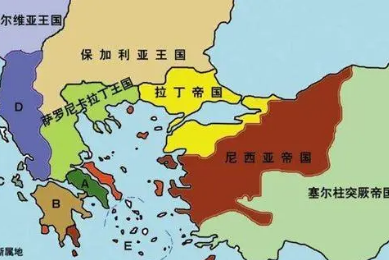In the long history of medieval Europe, there was a period marked as the "Crusades". This was a series of military expeditions launched by Western European Christian countries, with the goal of reclaiming holy places such as Jerusalem. This movement lasted for nearly 200 years, not only exerting profound influence on the participating countries, but also altering the historical process of the entire Middle East.

The background of the Crusades can be traced back to the early 11th century, when Jerusalem was controlled by Muslims, and many Christian pilgrims encountered difficulties on their way to the holy land. In 1095, Pope Urban II announced the call for the Crusades at the Council of Clermont in France, encouraging Christians to take up arms and reclaim the holy places occupied by the "infidels".
However, this military operation under the guise of religion was not solely a conflict of faith. In that era, the feudal system in Europe led to issues of land and wealth distribution. Many landless knights and adventurers saw the Crusades as an opportunity to acquire land and wealth through war. Meanwhile, some European monarchs also saw an opportunity to expand their territorial influence and actively participated in the Crusades, seeking to establish new territories in the East.
The process of the Crusades was full of twists and turns. In the early Crusades, the Crusaders successfully reclaimed places such as Jerusalem and established several Crusader states. However, these states gradually lost their advantage in subsequent wars and were eventually eliminated by Muslim armies. Over the course of nearly 200 years, countless Crusader soldiers paid the ultimate sacrifice, but their deaths did not change the religious landscape of the Middle East.
In addition to the wars themselves, the Crusades also brought about cultural and technological exchanges. European feudalism, architectural techniques, and agricultural technology were introduced to the Middle East, while many scientific knowledge and cultural achievements were brought back from the Middle East. This exchange played an important role in promoting the Renaissance in the later medieval period.
Overall, the Crusades were a complex historical event driven by both religious fervor and political and economic interests. Although the movement ended in failure, it had profound impacts on the history of both Europe and the Middle East.
Disclaimer: The above content is sourced from the internet and the copyright belongs to the original author. If there is any infringement of your original copyright, please inform us and we will delete the relevant content as soon as possible.
































